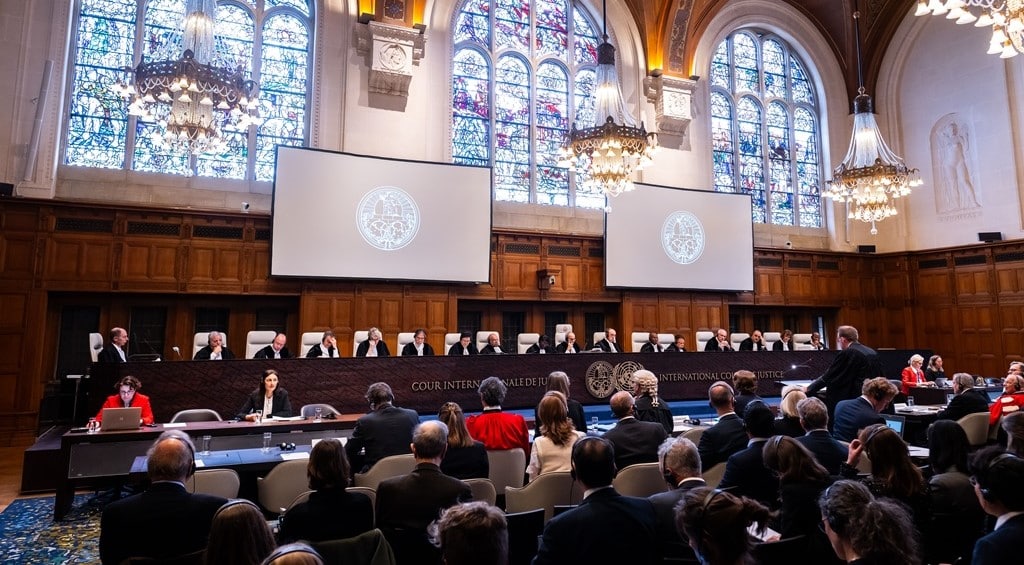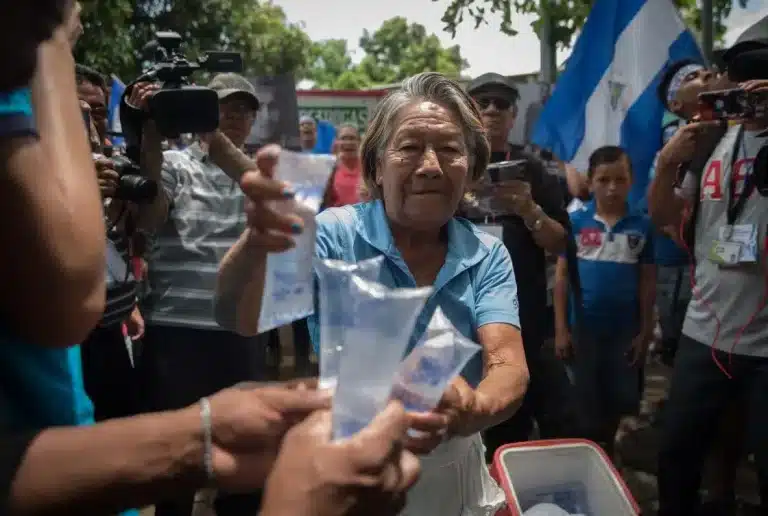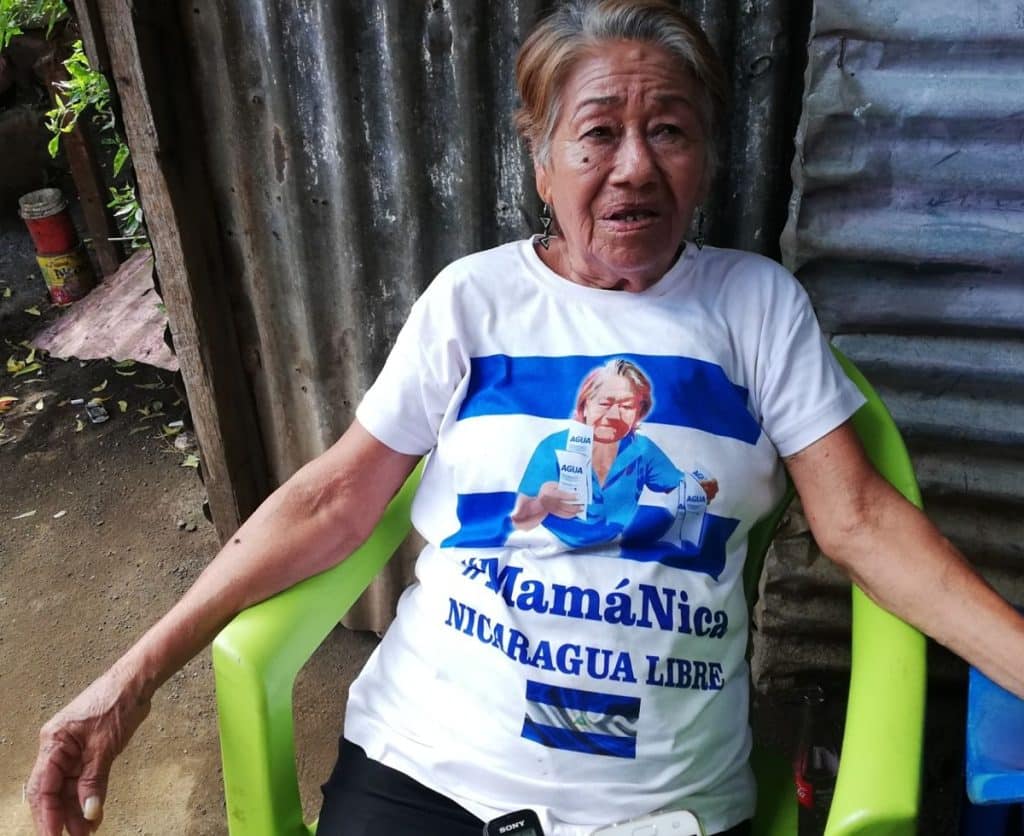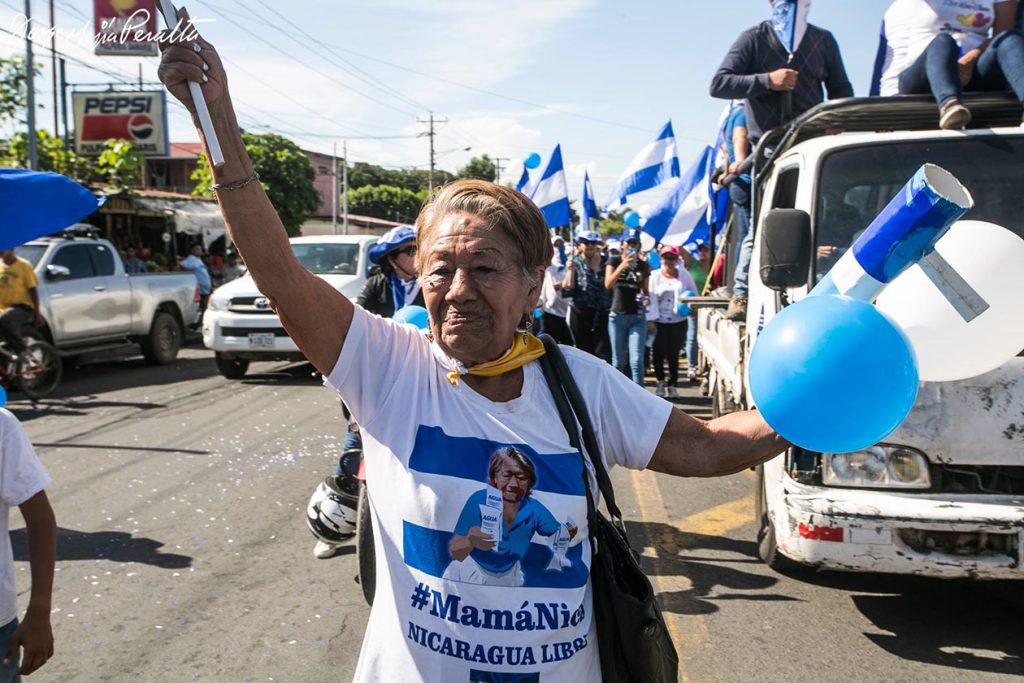23 de febrero 2024

ICJ Rules Against Nicaragua's Request For Germany to Halt Arms Sales to Israel

PUBLICIDAD 1M
PUBLICIDAD 4D
PUBLICIDAD 5D
Miriam Matus was one of the popular figures of the 2018 protests. Her last years were plagued by chronic illnesses

Miriam del Socorro Matus, known as Doña Coquito, was a street vendor who gave ice water to the mothers of those murdered and political prisoners in 2018.
Miriam del Socorro Matus, popularly known as “Doña Coquito,” passed away at the age of 84, on Tuesday, February 20. Doña Coquito became a symbol of civic protest in May 2018 when she gave away water to the mothers of those murdered and family members of political prisoners outside the Nuestra Señora de Fátima Seminary, where the failed National Dialogue took place.
“I remember arriving at that place and suddenly realizing that I had only managed to earn 16 córdobas, so I reflected, saw the pain of those women who were under the sun, and that’s why I started giving them my water,” said Doña Coquito in an interview with Niú magazine.
Her last years were plagued by the chronic illnesses she suffered from, which limited her quality of life. Doña Coquito was diabetic, hypertensive, and suffered from heart problems. La Prensa newspaper reported that according to her family the elderly woman died at the Fernando Velez Paiz Hospital due to a heart attack. She had been referred there after a deterioration in her condition. Her death has caused sadness among those who knew her.
In September 2018, Doña Coquito was arrested while participating in one of the last marches organized in Nicaragua, after the imposition of the de facto police state. The elderly woman was released hours later and recounted that while the policemen at El Chipote did not mistreat her, “the (policemen) who put me in the truck… told me the protestors were manipulating (me), I told them they weren’t.”

Doña Coquito became one of the most recognized faces of the April Rebellion in the country. Wherever she went, she received hugs and words of affection that she never imagined receiving. “After being a water seller, I felt important,” she said tearfully in an interview.
“I received the hugs that I didn’t have from my children, but I did from my people,” she added.
However, public recognition made her a target of Ortega’s repression. This forced her into exile in Costa Rica in 2019. However, her departure lasted only three months.
In February 2019, Doña Coquito gave an interview to the Boletín Ecologico in which she said she felt “demoralized” because she could no longer speak her mind due to the repression.
“We can no longer say what one thinks, what one wants. All this makes me very sick, very tired, I feel as if I’m worthless. Every day I feel more dejected because I can’t fight, because I can’t march. The march gave me strength, it gave me courage,” said the elderly woman at that time.
Doña Coquito’s story inspired singer-songwriter Carlos Mejía Godoy to compose a song in her honor. However, her support for the civic struggle distanced her from her own family because two of her six children, who are Sandinistas, stopped speaking to her.

In the six years after the 2018 protests, Doña Coquito’s health deteriorated to the point that in the last year, she could no longer move without assistance.
“I am very ill, I can’t walk, I fall, I get dizzy. I can’t walk alone, I walk with a crutch to support myself. My life is horrible right now. Only God can heal me. Coquito is coming to an end,” she said in April 2023.
Doña Coquito feared going to public hospitals because of her participation in the 2018 civic protests. “It scares me,” she said. So, her ailments were treated thanks to the medical attention provided by private health workers like Dr. Alejandro Lagos.
In September 2023, Doña Coquito was hospitalized after suffering three pre-heart attacks.
This article was published in Spanish in Confidencial and translated by Havana Times. To get the most relevant news from our English coverage delivered straight to your inbox, subscribe to The Dispatch.
PUBLICIDAD 3M
Confidencial es un diario digital nicaragüense, de formato multimedia, fundado por Carlos F. Chamorro en junio de 1996. Inició como un semanario impreso y hoy es un medio de referencia regional con información, análisis, entrevistas, perfiles, reportajes e investigaciones sobre Nicaragua, informando desde el exilio por la persecución política de la dictadura de Daniel Ortega y Rosario Murillo.
PUBLICIDAD 3D